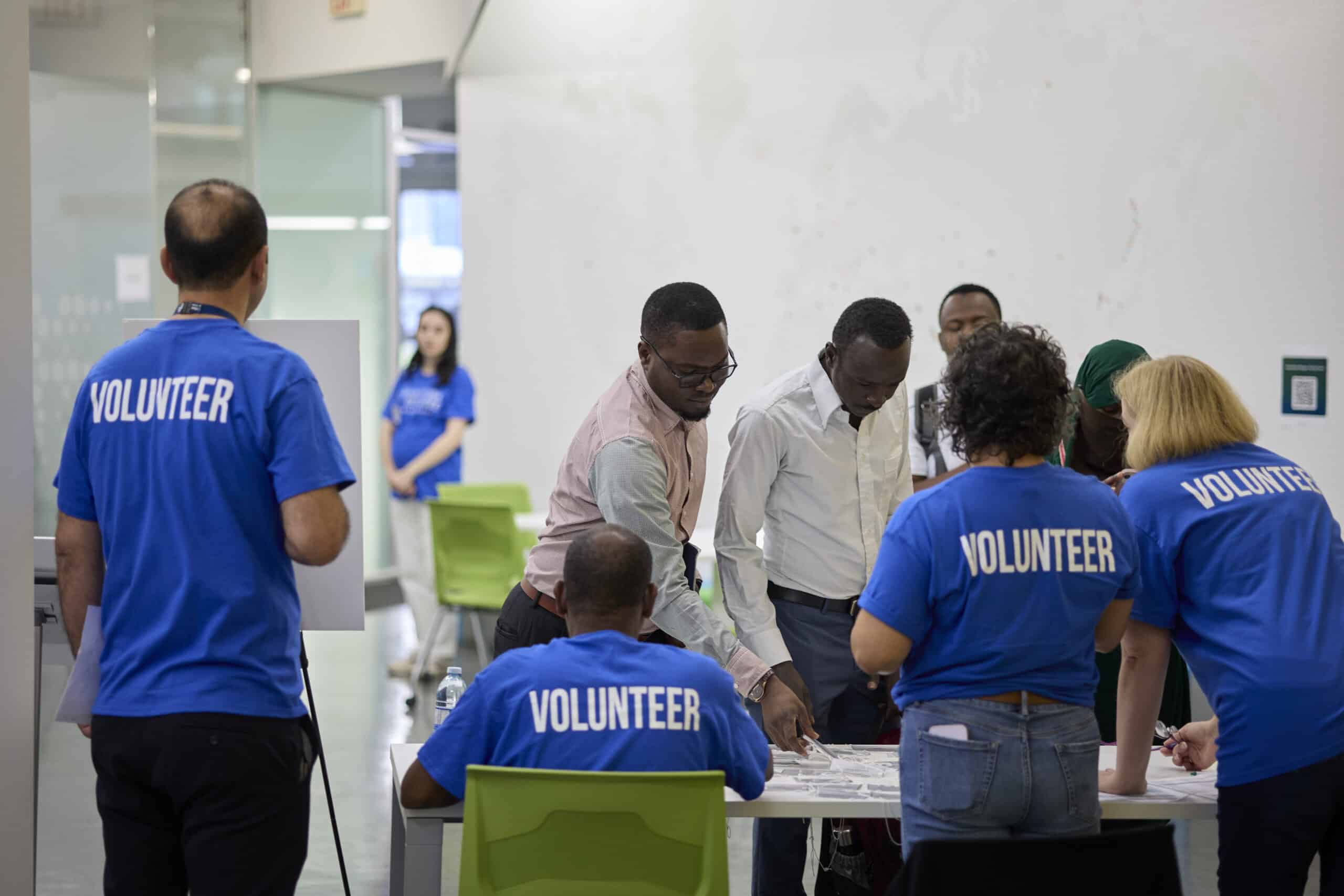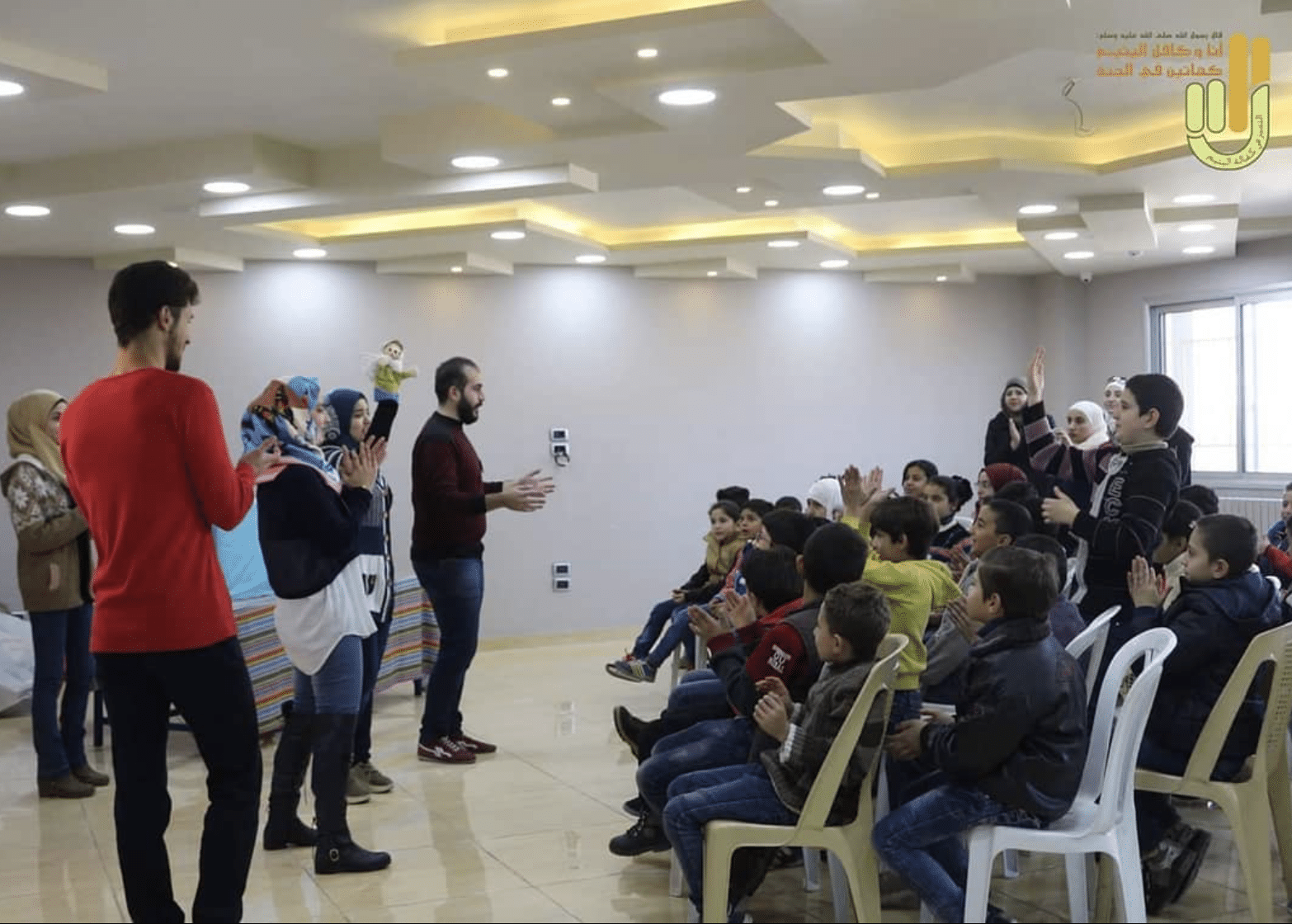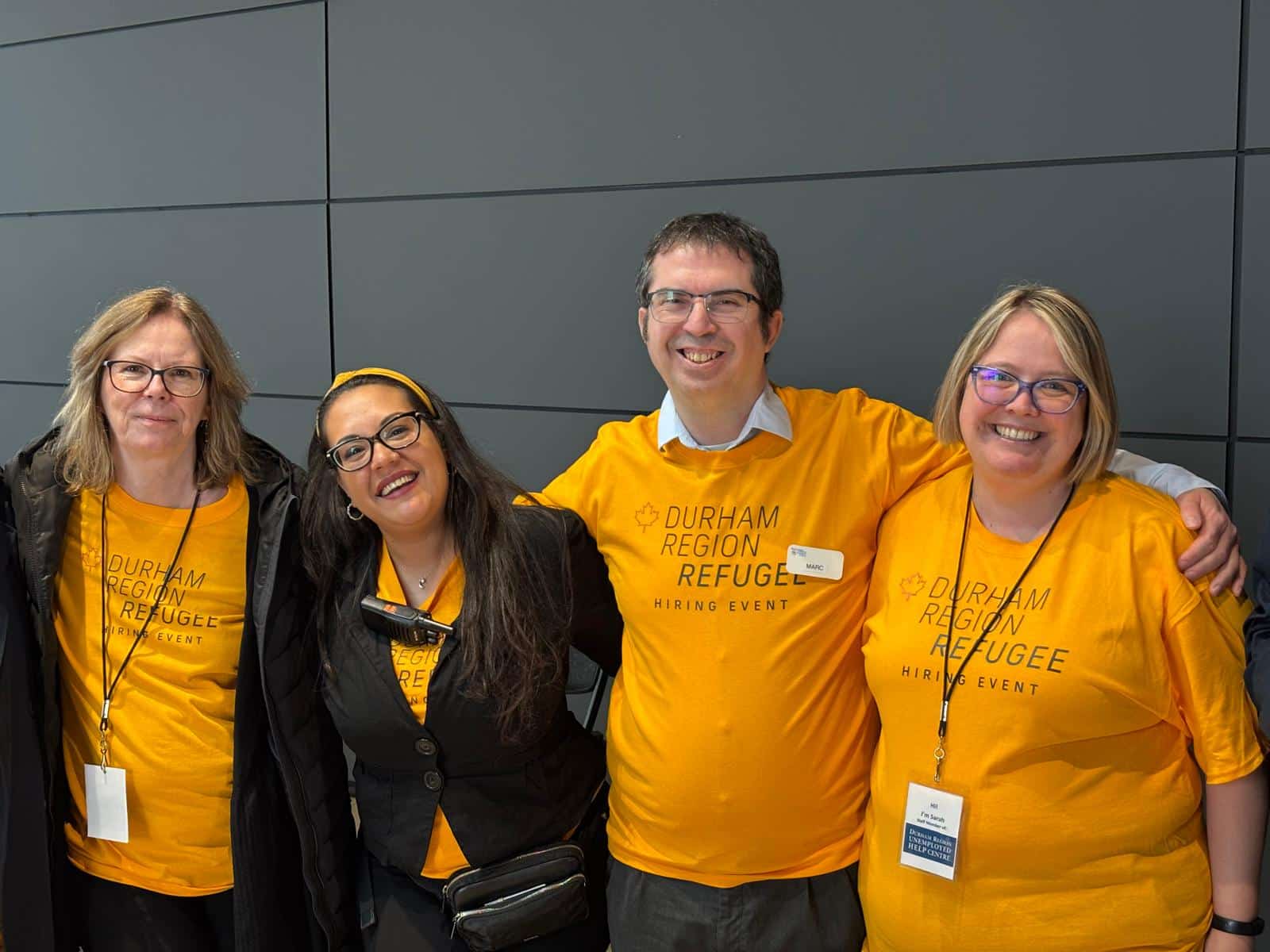More Than Job Fillers: The Leadership Potential of Refugees
“The word refugee is one of the harshest descriptions for a human being ever. Being a refugee means that someone took home away from you and then you became no one. Losing that sense of belonging was the hardest experience of our lives.”
— Tareq Hadhad, founder of Peace by Chocolate
When we hear the word refugee, we often think of crisis, displacement, and need. What we do not talk about enough is what comes after, the stories of reinvention and brilliance that follow forced migration. Too often, when we talk about refugees in the workforce, the conversation centers around what they can do to fill gaps in society. Refugees are frequently seen as answers to labour shortages, as workers, not leaders and as employees, rather than entrepreneurs. This view is narrow and does not reflect the full picture.
Refugees are not here just to fill jobs. They bring talent, resilience, creativity, and lived experience that fuel innovation and strengthen communities. In many cases, they are not just contributing to economies, but transforming them.
If we keep this narrative at the forefront of our minds, we could perhaps unlock countless talents that can help our society grow in ways that honour, rather than diminish, a lifetime of achievement. This supports meaningful assimilation, strengthens Canadian identity, and builds national pride as newcomers adopt this new identity.
Tareq Hadhad’s story embodies what the refugee narrative should center: not just survival, but leadership. Before the war in Syria, Hadhad’s family ran a thriving chocolate business, and he was on track to becoming a physician. “Everyone was involved in contributing to society,” he said. “But in a split moment, everything was gone… becoming a refugee is not a life goal. It is not a decision. It is not a choice.”

And yet, within a year of arriving in Nova Scotia, the Hadhad family restarted their business. Today, Peace by Chocolate is a household name in Canada, employing dozens, exporting nationwide, and advocating for peace and newcomer integration. Tareq has since become a nationally recognized public speaker, philanthropist, and recipient of the Meritorious Service Medal from the Governor General of Canada
This is not an isolated case. A group of Syrian refugee women in Vancouver, led by community organizer Nihal Elwan, arrived in Canada bringing with them rich culinary skills, albeit limited access to opportunity. Instead of accepting low-wage work, they co-founded Tayybeh, a mission-driven business that connects people through culture and cuisine. Their story is not just about building a business, it is about forging purpose, creating jobs, and ensuring that the Canadian chapter of their lives is a continuation, not a stunted stop or abrupt reset. They are helping reshape the Canadian social enterprise landscape.
When we define refugees solely as workers rather than leaders, creators or entrepreneurs, we ignore their full humanity and potential. A refugee is someone who had to leave everything behind, not by choice, but by necessity. And yet, so many go on to navigate unfamiliar systems, strive to contribute to their new communities, and rebuild from the ground up. That kind of resilience should never be reduced to merely filling roles in a struggling job market.
Refugees are frequently funneled into low-wage or “survival jobs” that do not match their skills or experience. But with access to mentorship, training, and networks, they excel. Journeys are rarely linear, but are marked by drive and adaptability, qualities that every employer claims to value.
The language we use matters. When we speak only of labour shortages and economic gaps, we risk erasing the stories, ambition and leadership that refugees bring with them. Refugees are not defined by what they have lost. They are defined by what they can —, and do —, build.

Key Takeaways
- Refugees Are Not Defined by Crisis Alone
The narrative around refugees often stops at crisis and displacement—but what follows is just as important: reinvention, leadership, and transformation. - More Than Labour Gap Fillers
Refugees bring resilience, innovation, and leadership. They are not just workers; they are entrepreneurs, changemakers, and community builders. - The Power of Rebuilding
Stories like Tareq Hadhad’s Peace by Chocolate and the women-led Tayybeh in Vancouver show how refugees can turn loss into legacy, building businesses that create jobs and social impact. - Support Unlocks Potential
With mentorship, training, and access to opportunity, refugees can thrive beyond survival jobs—bringing value not just economically, but socially and culturally. - Language Shapes Perception
How we speak about refugees matters. Viewing them only through the lens of economic need diminishes their agency. They should be seen as leaders with lived experience, not just job seekers. - Leadership Through Lived Experience
Refugees navigate unfamiliar systems, adapt quickly, and rebuild under pressure—qualities that define strong, capable leaders. - A Call to Reframe the Narrative
To truly foster inclusion, we must shift the narrative from deficiency to potential, from aid to empowerment. Refugees are not what they’ve lost, but what they continue to build.
To read more of Mariam’s articles, please visit:
Works cited:
Hadhad, Tareq. Peace by Chocolate Founder Tareq Hadhad Tells a Sweet Story of Family Food and Fortune. CBC Radio, 1 Aug. 2022, CBC Radio – The Next Chapter, “Asking the Founder: A Special Q&A with Tayybeh’s Nihal Elwan,” https://www.cbc.ca/radio/thenextchapter/full-episode-aug-1-2022-1.6268025/peace-by-chocolate-founder-tareq-hadhad-tells-a-sweet-story-of-family-food-and-fortune-1.6268365.
Elwan, Nihal. “Asking the Founder: A Special Q&A with Tayybeh’s Nihal Elwan.” Tayybeh, 31 Oct. 2024, https://tayybeh.com/blogs/news/nihal-elwan-interview-2024.
Calabrese, Darren. Tareq Hadhad at Peace by Chocolate. Photograph, UNHCR, featured on Tareq Hadhad’s website, 15 Nov. 2020, https://www.tareqhadhad.com/news/2020/11/15/all-about-tareq-hadhad-is-published-on-wikipedia.





